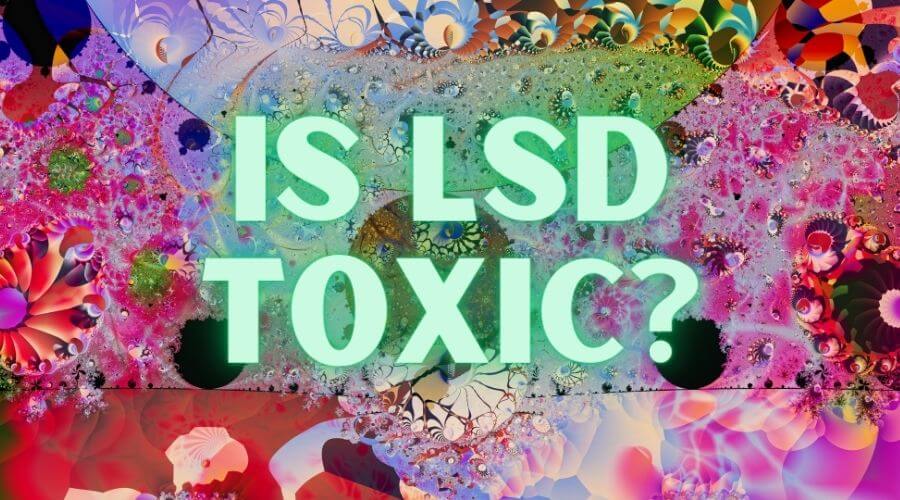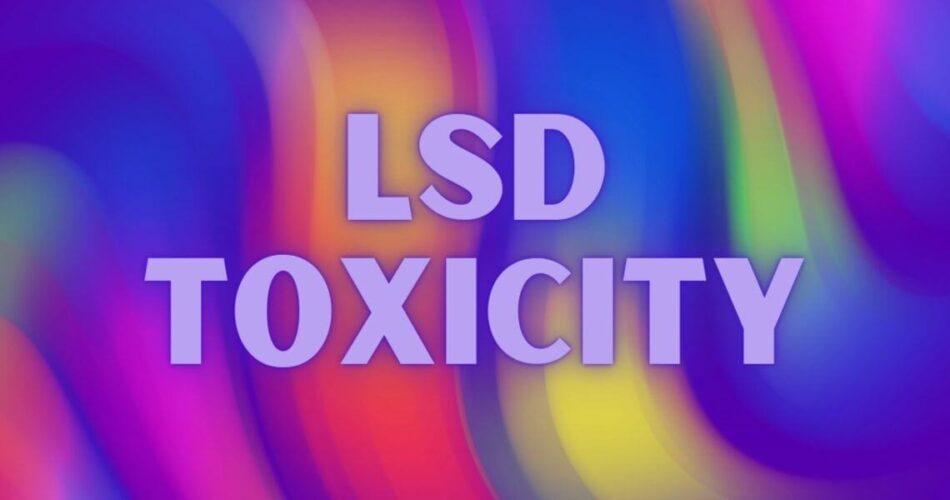TL;DR
- LSD is a powerful psychedelic drug that interacts with serotonin receptors in the brain and causes changes in perception and mood.
- Large doses of LSD can cause serious side effects, such as seizures, paranoia, panic attacks, altered states of consciousness and increased heart rate.
- High dosages interfere with certain processes in the brain such as memory formation and decision-making ability.
- Patients should be made aware of the risks associated with using LSD, so they can make informed decisions about whether to use it or not.
- Although not toxic when taken in small amounts, there is still a risk for serious side effects from massive overdoses or long-term recreational use.
What Lysergic Acid Diethylamide Actually Does
LSD remains a powerful hallucinogen that has been in use for decades. It works by interacting with serotonin receptors in the brain, which causes changes in perception and mood. LSD is not considered to be toxic to the body, however there have been reports of serious side effects from taking large doses. A massive overdose of LSD can cause symptoms such as seizures, paranoia, panic attacks, altered states of consciousness, and increased heart rate. In extreme cases, it can even lead to accidental death under the influence of LSD.

High Dosage & the Nervous System
The central nervous system is also affected by “LSD toxicity”. LSD’s interaction with serotonin receptors affects the neurotransmitters responsible for controlling movement, emotion, and behavior. This can cause visual hallucinations, confusion, disorientation, loss of appetite, agitation, and hyperthermia. High doses of LSD ingestion also interfere with certain processes in the brain, such as memory formation and decision-making ability.
Editor’s Note
LSD, while not technically toxic, can still be a powerful influence on the human body and mind. Even small doses could cause unexpected issues, so it’s important for patients to understand this risk before deciding whether or not they should partake in its use. Careful consideration of potential side effects is essential to ensure safe usage.
Patient Education
LSD has the potential to drastically alter one’s perception of reality, creating a unique journey through vibrant colors and mind-bending sensations. When used wisely, it can be a powerful tool for healing and self-exploration. However, it is also a potent psychoactive drug with a high potential for abuse. For these reasons, it is important that patients who are considering using LSD receive accurate and comprehensive education about the drug (and LSD toxicity).
LSD should only be used under the supervision of a qualified healthcare provider. As patients consider experimenting with LSD, they should understand both the potential risks and rewards that come along with it. Knowledge of overdose symptoms is also important in order to stay safe during use. Armed with this information, individuals can confidently assess whether or not taking LSD would be a smart decision for them.
LSD Toxicity: Final Thoughts
Overall, LSD does not seem to be toxic when the drug is taken in small amounts. Actually, with its therapeutic potential, it helped psychiatric patients in the 60s. Although LSD isn’t toxic, there is a risk of serious side effects from massive overdoses or long-term recreational use.
Since one case varies from the other, it’s important to use LSD (or other LSD alternatives, e.g. 25i-Nbome) responsibly and take steps to ensure that it’s consumed safely. With the potential for long-term effects, it is essential to be aware of any warning signs that may indicate LSD toxicity or complications. Should such symptoms arise, seeking medical attention swiftly can make all the difference in ensuring a safe and successful recovery from this powerful psychedelic drug.
Frequently Asked Questions
Is LSD Toxic to Humans?
Taking LSD comes with potentially fatal risks – not only can it cause physical and psychological effects, but large doses in combination with other drugs could prove to be a deadly mix.
What Are the Short-Term Effects of LSD?
Taking LSD can turn reality upside down – it sends your heart rate skyrocketing, expands your pupils, and causes drastic changes in perception. Not only will you see things that aren’t there with hallucinations and delusions; time itself may feel distorted as if the present moment is an eternity! But of course, this comes at a cost – increased blood pressure, sweating, and nausea are sure to follow.
What Are the Long-Term Effects of LSD?
Long-term effects of LSD use can include flashbacks, anxiety, depression, and cognitive impairments. There is also a risk of developing persistent psychosis or hallucinogen persisting perception disorder (HPPD).
Similar Posts:
- Does LSD Kill Brain Cells or Fry Your Brain? Long-Term Effects of LSD
- How Much LSD Is Too Much? Facts About LSD Overdose
- Lethal Dose of LSD (Lysergic Acid Diethylamide) – Is It Real?
- LSD and Epilepsy: What’s the Effect of LSD Trips on Epileptic Patients?
- Can LSD Cause Serotonin Syndrome Like Antidepressants?
- Shrooms vs. Acid: What Are the Similarities and Differences Between Magic Mushrooms and LSD (Acid)?
- Antidepressants and LSD: Taking Psychedelics and SSRI Meds




